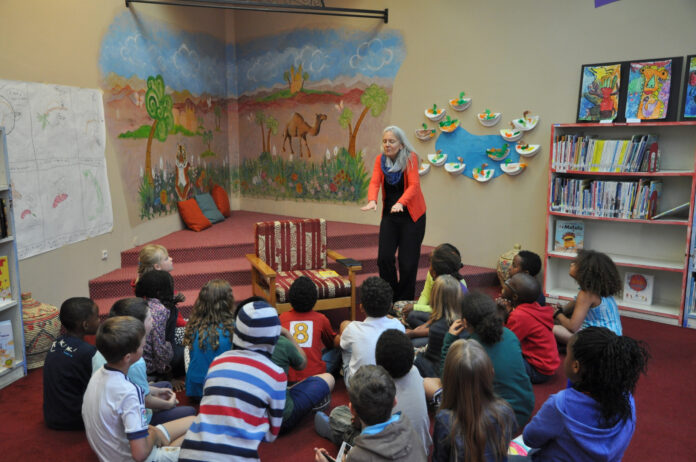Kids have the willingness to take action if given the chance and knowledge
When did you first learn about climate change?
Most of my fellow environmentalist friends first learned about climate change in their AP Environmental Science classes during high school or in community college. I didn’t learn about it until my third year in the U.S. Navy, while watching documentaries during one of my many long nights aboard an aircraft carrier.
If you attended K-12 in a public school in California after September 2013, you were more likely to have learned about climate change in one of your science classes. This is because California adopted the Next Generation Science Standards in its curriculum — a higher STEM teaching standard program set by educators and scientists.
As of today, 21 states and the district of Columbia have adopted the NGSS for their education system. Unfortunately, just because your state has adopted the NGSS doesn’t mean children will be exposed to the program.
While 86% of teachers think schools should teach climate change, only 42% actually teach it. The biggest reasons for this discrepancy — heightened by the fact that teachers are overworked and underpaid — are that climate change is outside of their expertise; they don’t know enough about it, and they don’t have the materials to teach it.
So are parents stepping up and teaching their kids about climate change? According to the same poll, only 45% of parents talk about climate change with their kids. As the older generation and culprits of current climate change, we’re failing our youth and future leaders by not educating them about the biggest problem they will face in their lifetime.
Who’s to blame? Is it parents? Teachers? The education system? The government? Ourselves?
When I was watching my pirated climate change documentaries aboard that aircraft carrier in the middle of the Atlantic, I experienced a whirlpool of emotions. I felt anger, motivation, confusion, curiosity, disillusion and fear — yet also a sense of relief. Tired of the mundane and monotonous long nights, all I wanted during that time of my life was a purpose, a direction, something meaningful to contribute to. Learning about climate change filled that role and changed my life forever.
We are living in a time when children are unwillingly set to be the proprietors of the consequences of our actions and will feel the full wrath of climate change. By failing to educate our youth, we are committing the greatest injustice against them and robbing their chance to find purpose and fight back.
Youth around the world are showing us what they are capable of doing when they are aware of the perils of climate change. Young people from 123 countries are following the footsteps of a 16-year-old Swedish student — Greta Thunberg — and skipping school on Fridays to strike for a climate action.
In the U.S., 21 kids, teenagers and young adults from ages 11 to 22 are suing the U.S. government in the case Juliana v. United States for “supporting a national energy system that emits prodigious amounts of greenhouse gases into the atmosphere, thus stoking human-caused climate change and endangering their futures.” The plaintiffs are arguing that the government is depriving them of their guaranteed rights to life, liberty and property.
When our youth have the most to lose, it’s in their best interest to take action. And they have showed us they will do just that. We know what they are capable of if they are just given the chance to learn. They just need motivation, a direction, something to care about, and they will put their all into the cause.
More than ever before, we need communicators and educators. If you’re a teacher, teach. If you’re a father, enlighten. If you’re a brother or sister, provide guidance. If you’re a friend, inspire change. Give purpose and teach about our most pressing issue!
We don’t need to be experts in the field to raise awareness in our youth. We simply need to plant the seed. Curiosity will feed our eager youngsters, they will sprout and our youth and planet will bear fruit.
Written by: Daniel Oropeza — daoropeza@ucdavis.edu
Disclaimer: The views and opinions expressed by individual columnists belong to the columnists alone and do not necessarily indicate the views and opinions held by The California Aggie.





